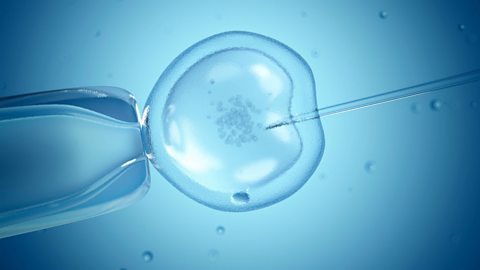Hormones used in reproductive technology to treat infertility – Higher
Fertility treatments
Some women have difficulty becoming pregnant because they don't produce enough FSH to allow their eggs to mature. Fertility drugs contain FSHFollicle Stimulating Hormone. It stimulates oestrogen production and the growth of follicles (egg-sacs) in the ovary. It is secreted by the pituitary gland. and LHLuteinising Hormone, secreted by the pituitary gland, which stimulates ovulation., which stimulate eggs to mature in the ovary.
Fertility treatments increase a woman's chance of becoming pregnant, although the treatment may not always work. On the other hand, because the treatment boosts the production of mature eggs, it increases the chance of twins or triplets. Multiple pregnancies carry a risk of complications, and may lead to premature or underweight babies.
In vitro fertilisation (IVF) treatment

If a couple are having difficulty conceiving a child because there are issues with the quality of the man's sperm, or a woman has blocked oviducts, then IVFThe letters stand for 'in vitro fertilisation'. This involves bringing the sperm and the egg together to create an embryo, which is placed into the woman's womb to increase the chance of giving birth. can be used.
- IVF involves giving a mother FSH and LH to stimulate the maturation of several eggs.
- The eggs are collected from the mother and fertilised by sperm from the father in a dish in the laboratory.
- The fertilised eggs develop into embryos.
- At the stage when they are tiny balls of cells one or two embryos are inserted into the mother's uterus (womb).
The development of microscopy techniques have allowed IVF treatments to be developed further.